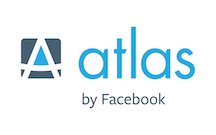The Great Data Race

A data race is taking place in the media and advertising industry. New technology and the ability to gather and analyse large volumes of data are changing the ways in which advertisers reach consumers. Consumers were once split into demographic groups, which were targeted via mass media. Today we are bought and sold one by one on global ad exchanges. This results in marketing which is highly targeted and which presupposes that the marketers have a thorough understanding of our habits, interests, tastes and network of contacts, in order to have the greatest impact.
Google and Facebook dominate the market in automated ad trading because they have such an enormous amount of information about us. In Norway and Europe big media companies are currently building their own platforms for programmatic technology in an attempt to take on the global giants. The company who has the most data and the best technology is the winner of the data race.
Every time we visit a website we don’t engage with just one company, but many companies at the same time. As well as the publisher who owns the site, ad exchanges, demand side and supply side platforms, ad networks, data brokers and data management platforms are present using various tracking tools. Our report reveals that on average 43 different companies have a presence on Norwegian online newspapers and record what we do. Between 100 and 200 cookies were stored on our web browser when visiting the front page of six Norwegian newspapers.
As a user, you may first notice the result of the cookies placed on your browser when the same ad starts following you around the Internet. The information that is gathered is used to build up comprehensive profiles about us. The more detailed the profiles are, the greater their market value.
If we lose control of our own personal information, we also lose the ability to define who we are ourselves. No sector in the world knows more about us than the advertising industry. At the same time, we have very little insight into how these companies use the information they have about us.
Privacy must not only give the individual protection against constant surveillance by the authorities, but also protect us against private companies monitoring
everything we do. The individual is very small compared to a large corporation. Privacy legislation must redress some of this imbalance of power. Because the advertising industry is so lacking in transparency, however, individuals have limited opportunities to exercise their fundamental right to privacy in their dealings with it.
The information asymmetry that characterises the market is a form of market failure. When consumers have no knowledge about what is going on, they cannot demand services that offer better privacy. The uneven distribution of information results in a competitive situation, which encourages the market players to use methods increasingly invasive of privacy. When we surf the Internet we want quick and easy access to the services we are searching for. We will almost automatically accept everything we are asked to accept. Making the processing of personal data subject to consent does not, then, have the intended effect. When we let individuals decide for themselves, the individual must stand alone against big and powerful players who are in reality able to dictate what the individual must consent to.
The Norwegian Data Protection Authority will work to increase transparency and openness in the advertising market, ensure genuine freedom of choice for users and give the user more control over his or her own personal information. The most important recommendations and measures we propose in the report are as follows:
-
Publishers (such as newspapers) must take responsibility for the third-party players they allow access to their pages.
-
Companies engaged in the collection of personal data for profiling and marketing purposes must base the processing of the data on an active consent from the users
-
Publishers must give all users access to their services, including those who do not consent to their information being collected.
-
The privacy policies must be improved. They must be short and easy to follow, but must also include clear information about what data is collected, how it is processed and whether other players have access to the information.
-
Publishers, media agencies and advertisers must join forces to produce guidelines that may contribute to greater openness and transparency about the nature of targeted advertising.
—-
Full report available at http://bit.ly/1Z89sz1 (link is external)


